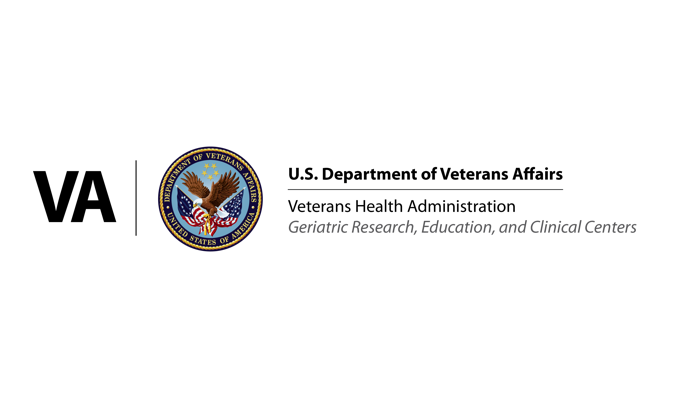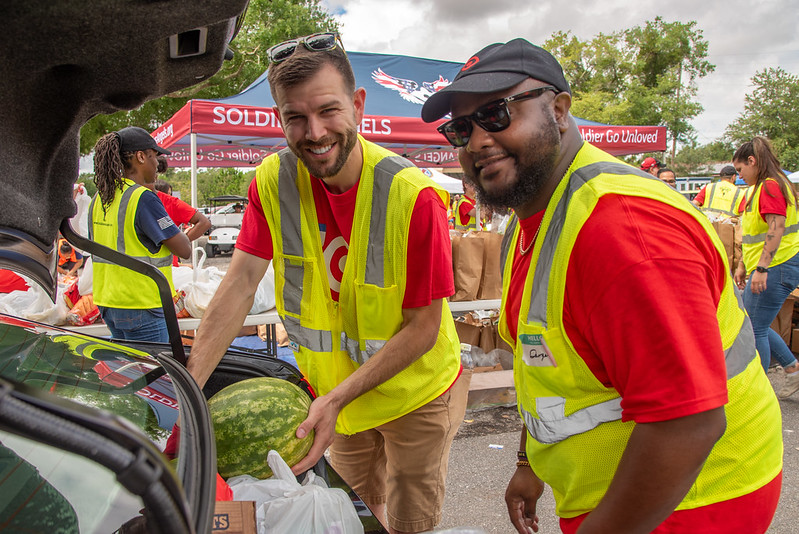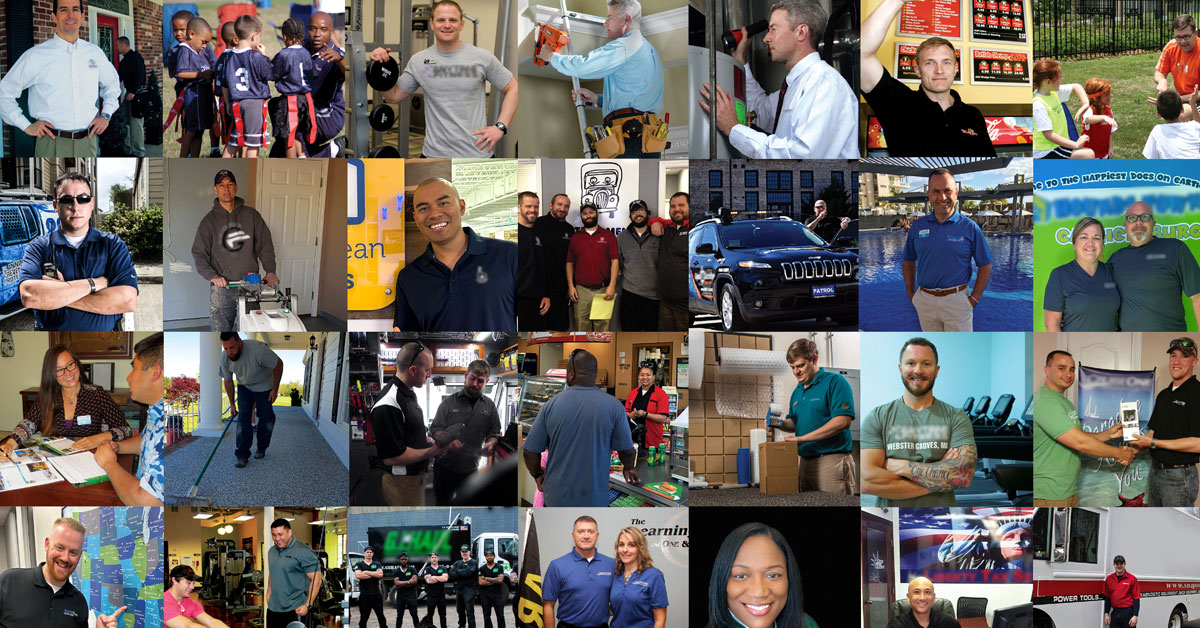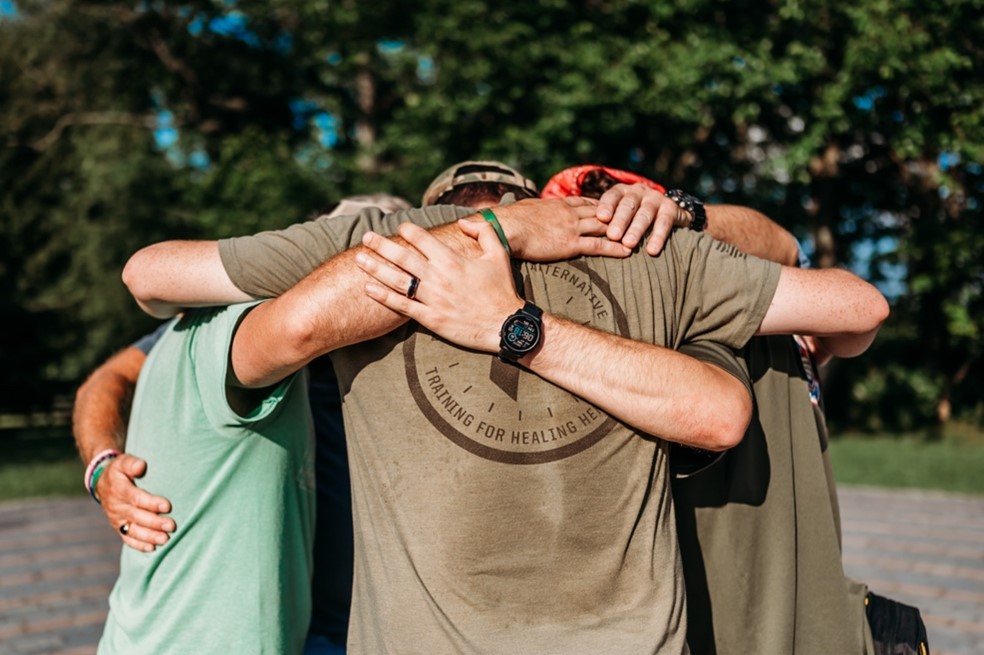Veteran Kenneth Tutt, age 79, starts his weekdays with an 8:00 a.m. telephone call to his Home Based Primary Care provider of four years, Nurse Practitioner Rhonda Weinhold. Together they review his weight, blood pressure and sugar levels.

Nurse Practitioner Rhonda Weinhold on a recent Home Based Primary Care visit with Veteran Kenneth Tutt.
Like most HBPC patients, Tutt takes a high number of medications to treat multiple health conditions. Weinhold’s 80 HBPC patients average 14 daily medications. Some more than thirty.
HBPC teams set-up 30-day medication boxes for patients. “Instead of having to take their medicines out of 10 or 15 bottles, we put them in a medication organizer for them,” Weinhold said. “We love doing it, but more and more we noticed our patients were on so many medications. We just stopped and thought, are there medications we could potentially get rid of that actually might be doing more harm or that are not needed?”
VA Geriatric Scholars Program
Weinhold recently participated in the VA Geriatric Scholars Program, a workforce development program to integrate geriatrics into primary care practices. One cornerstone of this training is understanding appropriate and potentially inappropriate prescribing practices for older patients. With this in mind, she developed a local quality improvement project to improve medication management, including reducing the average number of medications taken by patients in her panel.
She teamed up with HBPC team member Jena Willis, Doctor of Pharmacy. They decided to consolidate the pharmacist’s medication de-escalation recommendations into a plain-language addendum to the patient’s shared electronic health record—the digital version of a patient’s medical file. “These are the meds we think could possibly be taken off the patient’s medication list,” Weinhold explained.
“I would go into the home and review it face-to-face,” she said. In-person outreach allowed her to engage patients in the decision-making process. When she asked Veterans how they felt about getting off some medicine, reactions were positive. “It was a terrific idea,” Tutt recalled. “Overall, everyone was completely satisfied. We had no adverse effects or outcomes.”
Innovation
Once Weinhold and Dr. Willis fine-tuned their process, Weinhold brought the registered nurses and the others onboard. It was a team effort. Three registered nurses met in person with 80 patients over six months. “We were able to decrease the number of medications by two medicines per patient on average,” Weinhold said. “That’s huge when you’re taking 15 to 20 medications.”
“It worked like clockwork with the Staunton team,” said Dr. Willis, who will soon introduce the program to all HBPC teams at the Salem VA Medical Center.
“Right when we started this project our pharmacy residents just happened to be working on a grand rounds presentation,” said Dr. Willis. “The grand rounds lecture series was on the de-escalation of therapy for the medical department. When the pharmacy residents sent out their presentation for review, Dr. Willis brought them up-to-speed with what they were already doing in HBPC. The residents added the information to their presentation as an introduction to the rest of the medical facility.”
“Research shows the more medication patients are on, especially for the elderly population, the greater the risk for falls,” Weinhold said.
“The most rewarding thing is providing improved quality of life for our patients, whether it’s three more days, three more years, or thirty more years,” Dr. Willis said.
Maureen Jerrett is a contract writer for VA Geriatric Scholars Program
Topics in this story
More Stories
Soldiers' Angels volunteers provide compassion and dedication to service members, Veterans, caregivers and survivors.
Veterans are nearly three times more likely to own a franchise compared to non-Veterans.
Built by Veterans for Veterans, Warrior PATHH is an in-person program designed to train you to manage struggle, trauma and hardship.







Agree with Dr. Willis “improved quality of life”
I definitely am interested in this program. I am 100%SC Permanent, 77 years young, and taking an average of 14 different pills daily. Is this available in North Las Vegas? I am near the VA Southern Nevada Healthcare facility, but must go to VA Northwest, on Rancho Way for my Primary Care.
I am a Home Based Primary Vet. I love this system because I have mobility issues and its a bit far for me to go and wait in the local clinic. the Nurse Practitioner I have now goes way out of her way to make sure Her vets are taken care of properly. Very attentive to my needs. Fact during this power outage we were in, she went out to each of her vets that she could not reach by phone and make sure that had all the necessary supply’s to make ti thru the possible 5 days of no power. I am so greatfull to her for that effort. I sincerely hope they never do away with this program.
I am interested in this program. I take many meds for different problems. I am 100% TPD age 71. Could someone call.
Call your local DAV. They will get you on the right path. Thank you for your service!
article is great
thanks for you
No comment at this time. Just trying to get as much information at this time and trying to find out exactly what I qualify for with the VA health care service. I served from Aug. 1954 to Aug 1956 in the army. I am being charged full price for hospitalization and other medical expenses such as primary care at the same rate as private doctors and hospitals. That does not seem right to me as an active member who served on active duty for two years. There doesn’t seem to be any difference in financial cost to me from the VA as compared to private medical care. I sincerely hope that the VA administration can rectify this situation which I believe is wrong and unjust to me as a veteran who I believe, as a veteran I have earned the right to entitlement according to the law.
This appears to be a problem for many veterans who have lost limbs an unable to get around without some handicap assistance or a vehicle equipped with the ability to transport them to an from other locations other than VA appointments?
Does anyone know who I can contact for transportation from VA to a place out to eat or a park or anywhere and then bring them back without charging an arm and a leg?
Is the home based program available at all v.a. hospitals?